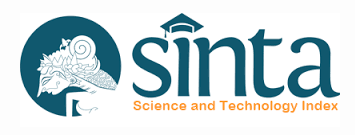MUHAMMAD ABDUH : KONSEP RASIONALISME DALAM ISLAM
Abstract
Abstract; Muhammad Abduh seorang Pemikir Pembaru Islam yang sangat berpengaruh di dalam sejarah pemikiran Islam. Pemikirannya membawa dampak yang signifikan dalam berbagai tatanan kehidupan pemikiran masyarakat meliputi aspek penafsiran Al-Qur'an, pendidikan, social masyarakat, politik, peradaban dan sebagainya. Islam adalah agama yang terdiri dari beberapa aspek yang saling berhubungan, satu dengan yang lainnya. Yaitu Aqidah (Teologi), Syariah (Hukum Islam), dan Akhlak (tasawuf). Namun dalam hal ini, penulis memilih fokus pembahasan pada pemikiran dalam bidang akidah (teologi) dan hukum karena kedua ini sangat menentukan kehidupan seseorang dalam bertindak. Kepercayaan pada kekuatan akal, membawa Muhammad Abduh selanjutnya kepada faham yang mengatakan bahwa manusia mempunyai kebebasan dalam kemauan dan perbuatan. Dalam teologi dan falsafah terdapat dua konsep mengenai hal tersebut. Pertama, pendapat mengatakan bahwa semua perbuatan manusia telah ditentukan semenjak aza, sebelum ia lahir, dan faham ini dalam teologi Islam disebut jabariah. Dalam teologi Barat pendapat ini disebut fatalisme atau predestination. Kedua, bahwa manusia mempunyai kebebasan sungguh pun terbatas sesuai dengan keterbatasan manusia dalam kemauan dan perbuatan. Faham ini dalam Islam disebut qadariyah, dan dalam teologi Barat disebut free will and free act. Pemikiran Muhammad Abduh sangat berpengaruh dalam dunia Islam baik di Mesir maupun negara-negara Arab lainnya, sehingga muncul ulama-ulama modern seperti Mustafa al-Maraghi, Mustafah Abd Raziq, Tantawi Jauhari, Ali Abd al-Raziq dan Rasyid Ridha, pengarang-pengarang dalam bidang agama seperti Farid Wajdi, Ahmad Amin, Qasim Amin juga di Indonesia tidak sedikit gerakan pembaruan yang dicetuskan sepert Ahmad Surkati dan gerakan al-Irsyad, Ahmad Dahlan dan gerakan Muhammadiyah dll. Kata Kunci: Konsep, Rationalisme Muhammad Abduh an Islamic reformer thinker who is very influential in the history of Islamic thought. Their thinking is a significant impact on the livelihood of various aspects of people's minds include interpretation of the Qur'an, educational, social, society, politics, civilization and so on. Islam is a religion which consists of several interrelated aspects, one with the other. That Aqeedah (theology), Sharia (Islamic law), and Morals (Sufism). But in this case, the authors chose to focus the discussion on the thinking in the field of Aqeedah (theology) and the second law because it largely determines the life of someone in the act. The belief in the power of reason, bringing Muhammad Abduh next to the ideology that says that man has the freedom to will and deed. In theology and philosophy, there are two concepts about it. First, it argued that all human actions have been determined since aza, before he was born, and this ideology in Islamic theology called jabariah. In the opinion of Western theology is called fatalism or Predestination. Secondly, that man has the freedom really is limited in accordance with the limitations of the human will and deed. This ideology in Islam called Qadariyah, and in Western theology is called free will and free act. Thought Muhammad Abduh very influential in the Islamic world both in Egypt and other Arab countries, making it appear modern scholars such as Mustafa al-Maraghi, Abd Mustafah Raziq, Tantawi Jauhari, Ali Abd al-Raziq and Rashid Rida, authors in field of religion as Farid Wajdi, Ahmad Amin, Amin Qasim also in Indonesia is not the slightest movement triggered updates sepert Ahmad Surkati and movement al-Irshad Ahmad Dahlan and Muhammadiyah movement etc. Keywords: Concept, Rationalism
How to Cite
Abbas, N. (1). MUHAMMAD ABDUH : KONSEP RASIONALISME DALAM ISLAM. Jurnal Dakwah Tabligh, 15(1), 51-68. https://doi.org/10.24252/jdt.v15i1.338
Issue
Section
Vol. 15, No. 1, Juni 2014
Once an article was published in the journal, the author(s) are:
granted to the journal right licensed under Creative Commons License Attribution that allows others to share the work with an acknowledgment of the work's authorship. permitted to publish their work online in third parties as it can lead to wider dissemination of the work. continue to be the copyright owner and allow the journal to publish the article with the CC BY license receiving a DOI (Digital Object Identifier) of the work.





